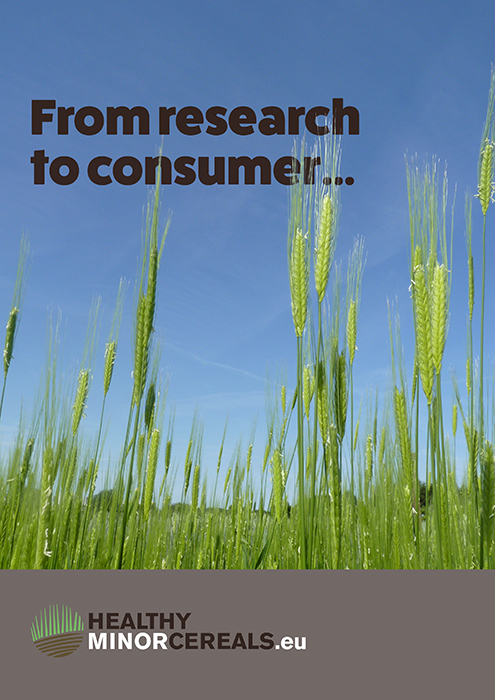In this in-depth feature, we find out how the multidisciplinary HealthyMinorCereals project responds to consumers’ increasing demands for healthy, nutritious and innovative food
A spokesperson from the HealthyMinorCereals reveals their thoughts on the demands of today’s consumers for food that is healthy, nutritious, innovative and produced sustainably. This in-depth article focuses on the findings of socio-economic sciences research led by Swiss HealthyMinorCereals partner FiBL, surveying the trends and habits of consumers in selected countries concerning minor cereals, to better understand how to market these crops and their products.
We discover that the reduced genetic variation, caused by the breeding for high yields, can make crops more vulnerable to both biotic and abiotic stresses that are likely to increase with of climate change. We learn that these problems cannot be solved solely using pesticides.
We are also told that minor wheat species have received a renewed interest, because of their suitability for low input and the organic production where they grow well, and because they are a source of new genetic diversity for modern wheat.
Another interesting development in the field is that while cereal crop species rye and oats have been traditionally grown in several European countries – due to the changes in agriculture as well as consumer demand over the last 70 years – both crops have now almost been replaced by common wheat.
In terms of funding, The HealthyMinorCereals project is supported by the EU 7th Framework Programme during 2013-18. The project fully supports minor cereals and follows the following areas of research in some detail: breeding; agronomy; processing; marketing and demonstration.
We also learn that according to European Union (EU) statistics, high cereal production is leading to saturated markets for wheat, barley, rye, and oats. Durum wheat, however, is an exception because it is the only cereal with a consistent supply deficit in the EU today. In addition, the HealthyMinorCereals project also sheds light on how currently underutilised minor cereals products are marketed across Europe, in a series of absorbing case studies.
In a bonus feature, European Agriculture & Rural Development Commissioner Phil Hogan shares his thoughts on the role of agriculture in water sustainability. In this piece, Commission Hogan argues that the role of water and agriculture sustainability is a complex policy issue and as such, it must be approached in a holistic way. In terms of policy, water and agriculture are very much at the heart of the 2030 Agenda for Sustainable Development.
I hope you enjoy reading the compelling and fascinating insight that this e-book offers, concerning both crop research and agricultural policy.


